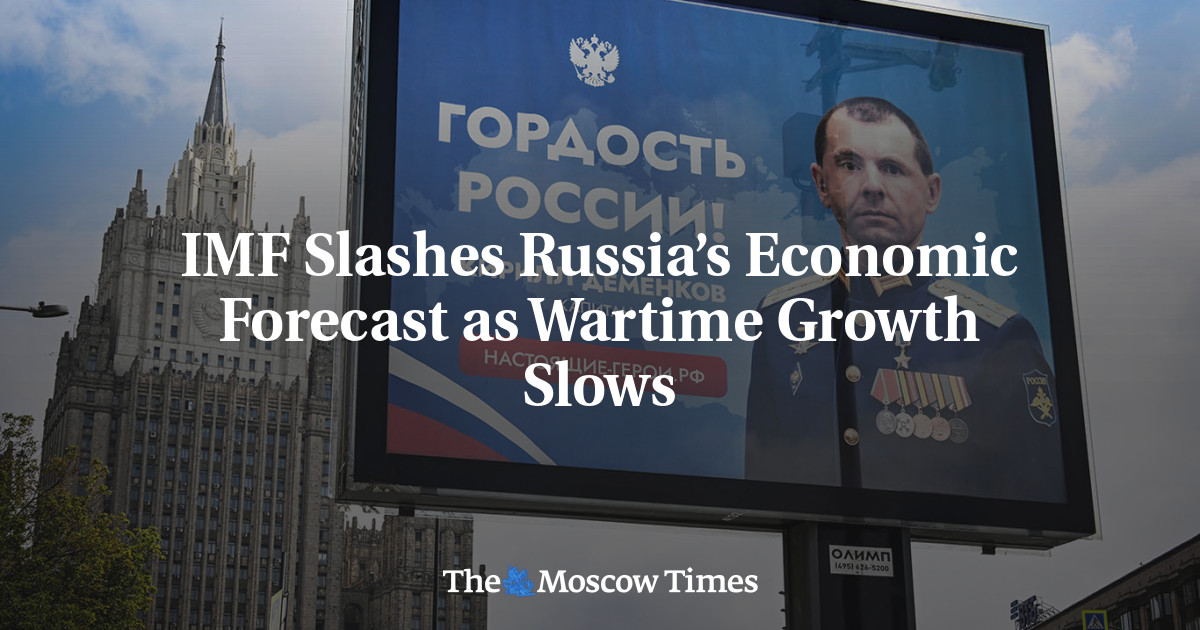The International Monetary Fund has downgraded its forecast for the Russian economy, signaling the end of a short-lived wartime growth surge and forecasting a return to stagnation.
In its July World Economic Outlook Update, the IMF projects Russia’s GDP will grow just 0.9% in 2025, a steep drop from last year’s 4.1% expansion. The revised forecast marks a 0.6 percentage point downgrade from the IMF’s April report — the largest cut among all major economies.
The world economy is expected to grow by 3% this year and 3.1% in 2026.
Developing nations are forecast to grow at roughly 4% annually, while Russia’s economy is expected to edge up by just 1% in 2026.
Over the next two years, Russia’s growth rate will be less than half that of the U.S., which is projected to grow by 3.9%, and will trail far behind China (9%) and India (6.4% annually in 2025 and 2026).
The IMF attributes the slowdown to tighter economic policies and falling global oil prices, which have eroded the key revenue streams that helped prop up Russia’s wartime economy.
The average price of Brent crude is forecast to drop 13.9% this year to $68.18 per barrel, with a further decline to $64.33 expected in 2026.
Petya Koeva-Brooks, deputy director of the IMF’s research department, said Russia’s performance in the first quarter of 2025 fell well short of expectations.
According to state statistics agency Rosstat, year-on-year growth dropped to 1.4%, down from 4.5% in the previous quarter and sharply below the 5.4% growth seen in the same period last year.
On a quarterly basis, the economy contracted for the first time since 2022. Non-defense sectors began declining in February and have now registered four consecutive months of contraction.
Those sectors had shrunk 0.9% year-on-year by late June, according to estimates from the government-affiliated Center for Macroeconomic Analysis and Forecasting.
Top Russian officials are beginning to acknowledge the economic risks.
At the St. Petersburg Economic Forum in June, Economy Minister Maxim Reshetnikov warned that the country was “on the edge of an economic downturn.”
Central Bank Governor Elvira Nabiullina delivered an even starker message, saying that the resources which had fueled wartime growth “have truly been exhausted.”
Nabiullina pointed to labor shortages, idle production capacity and dwindling reserves from the National Wealth Fund.
The fund’s liquid assets have reportedly fallen by two-thirds since the start of Russia’s full-scale invasion of Ukraine.
